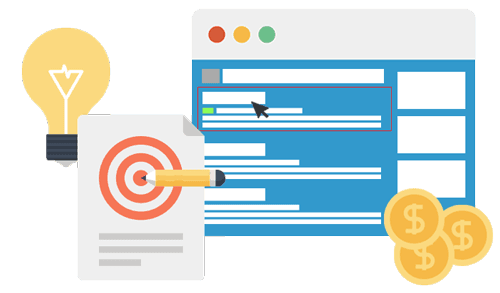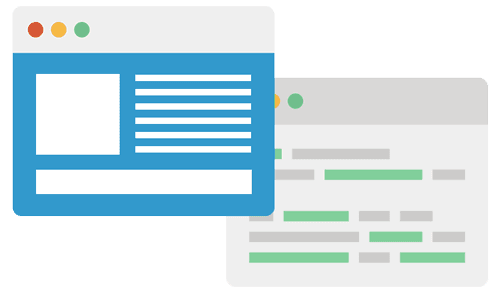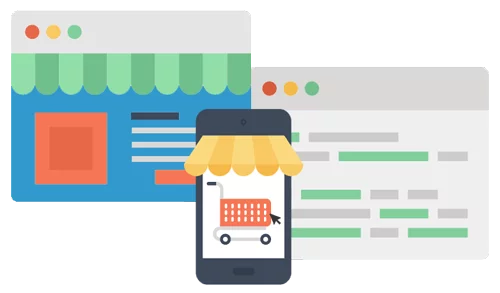Some web designers are promoting the idea of Single page websites. In fact, there are now many single page WordPress themes or multi-page themes that offer the single page layout. A single page website is just that, you take all the information of your business and put it in one single long page, aided with navigation jumps and links, the information is relatively easy to reach and all in one single place. Sugar coat it with big visuals (parallax backgrounds, large image icons and image buttons, well coloured fonts) and you have a visual feast that is quick and easy to prepare. No more planning a website structure or designing multiple sections or layouts.
And while this concept looks promising, particularly for businesses that lack the writing manpower, a single page website can be a terrible idea if you want your website to be found on searches and generate traffic and revenue.
Right about now you may be thinking, “Why?”
Glad you asked.
User Challenges of Single Page Websites
The landing zone (page)
Let’s say a user manages to find your website through a Google search. That is fantastic, however, this user will always land at the very top of the page when reaching your website from an external source.
Users type a keyword phrase in search with a specific subject or topic intent, and the expectation is that the pages you visit will contain the information needed in an easy to find and read format. With single page websites, because all the information is lined down from the top, the user now has to find the specific section with the information being searched. The particular paragraph or section may be in the middle or the bottom or may be named differently on the tabs and internal links, so now not only did the information requested was not at hand, the user has to search for it in a mass of information and visual queues. Said user may end up confused and annoyed, only to click back to search and try another website.
Load times and page size
Generally speaking, the more information and images you need to present in one single page, the slower your page loads. This makes users wait for the page to load before even trying to find the content they need. If this user is opening the page in a cellphone, the wait may be even longer. Not a a good thing.
A long way down
On mobile devices, scrolling through a very long page with a lot of content is not a great user experience. Especially if the user is looking for just one bit of information and that information is buried within the rest of the content. Let’s say our user is trying to find one particular service from your business and doesn’t know if you offer it. Well, Google said you do, but if the user can’t find it, frustration sets in and the user leaves.
SEO Challenges of Single Page Websites
How many keywords can you target
Google itself recommends that webmasters should limit the focus each page to one main subject and supporting concepts. This helps indexing but most importantly, helps users navigate the information and find what they need.
Purely on the SEO side, you only have one title tag and one description tag. These tags should only target one to two topics to avoid being confusing and looking spammy. If you have all your services and products, your history, main staff and contact info in one page, then, which would the tags focus on? What is the primary topic of the page? Now consider you may want to target specific cities and regions, each with a different set of keywords, your one page becomes too little too quick.
Understanding engagement
Analytics tracking of engagement may be difficult or a bit of a nightmare on a one page design. Visitor intent segmentation and actions are harder to analyse and figuring out why users are or aren’t buying or taking action may be difficult to do.
Size and load times (again)
Just as slow websites bother users, slow websites loose marks with Google and other search engines for the same reason of being a nuisance to users. It is all about the speed for SEO and for users, keeping a one page website lean and mean can be an complicated task.
Conclusion
If one page websites are not that good for SEO or for users, then why do designers and businesses like them? That is a great question.
We’ve just reviewed some reasons why one page websites are not a great idea, and while it is a good list, it is not every reason, just the main ones. Even with this limited list, we can see one pagers are not a great idea, but there are legitimate reasons to use them and other not so good reasons too.
A one page microsite is a good idea when you are doing a very specific campaign promoting one product, service or company and you want to provide a very specific experience for users. We use one pagers for PPC, Display advertisement, some social media and email marketing campaigns, so these one page sites do have a use.
In most cases, business owners may like the one page website idea as they don’t have to write as much content or think as much about the structure. Either way, it is easier and faster to put all information together in one page as you only really need one paragraph per concept to fill it up very quickly. Also, some of the one page designs look pretty.
Designers like them because they make their lives easier. No need to chase the client for content, explain the structure or design different layouts for different information, life is easy and can look very pretty.
If you have a business and want your website to be a real asset, it is best to invest some work or resources into it. Think of your website as the 24/7/365 sales persons, this person better be great or your business will suffer (especially in the long run).


 Ads & Digital Marketing
Ads & Digital Marketing Website Design
Website Design eCommerce Websites
eCommerce Websites